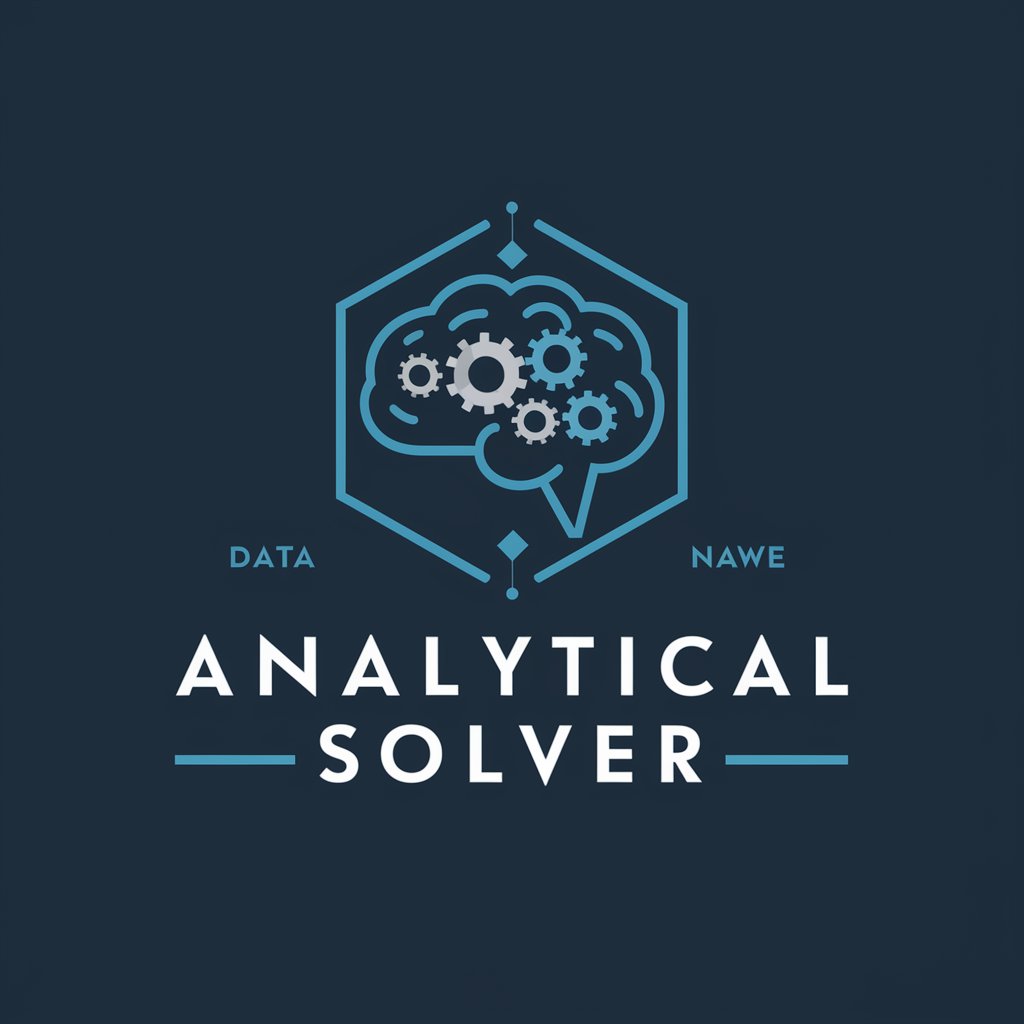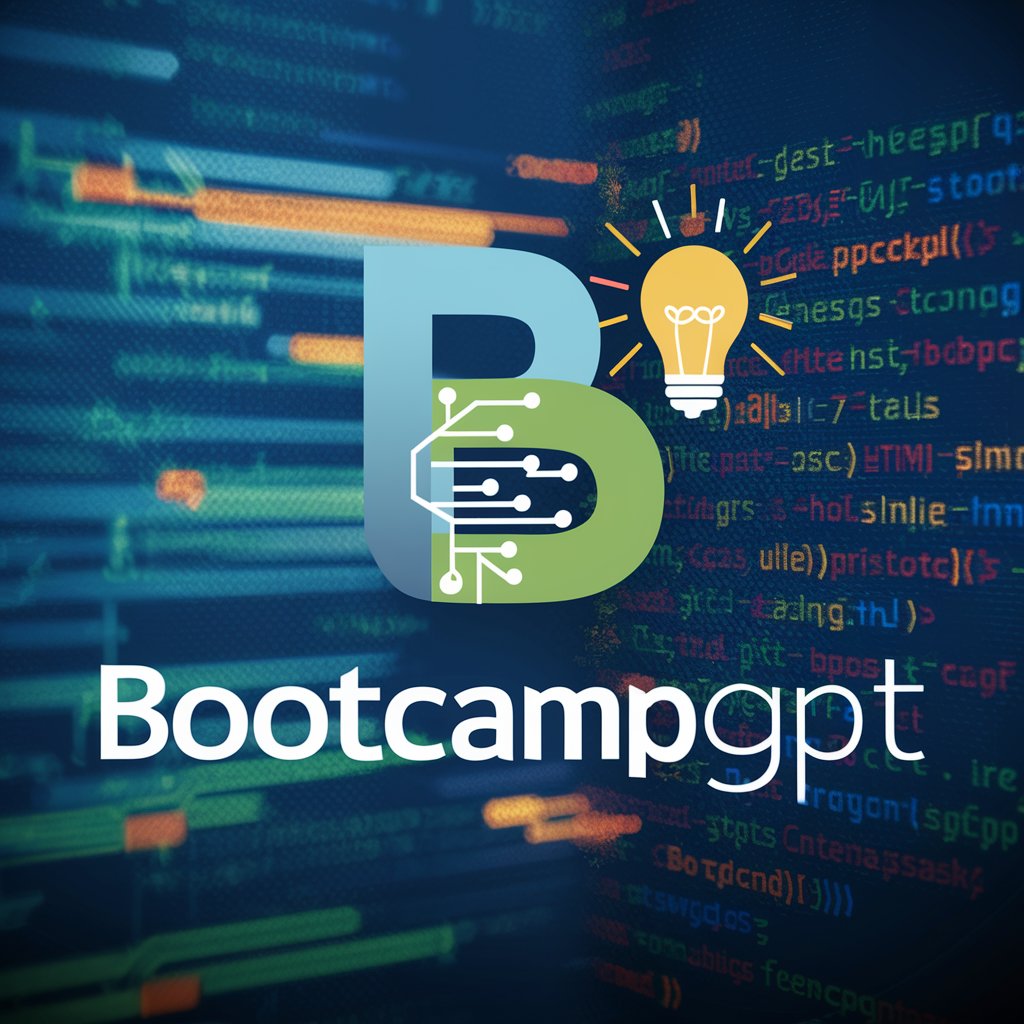Analytical Solver - Mathematical and Analytical Problem-Solving

Hello! I'm here to assist with your analytical and mathematical needs.
Empowering Analysis with AI
Analyze this dataset to provide insights on...
Solve this mathematical problem and explain the steps...
Extract key information from this file and summarize...
Generate a detailed report on the statistical analysis of...
Get Embed Code
Introduction to Analytical Solver
Analytical Solver is designed as a specialized tool aimed at providing mathematical and analytical solutions. Its core functionality revolves around extracting data and information from various sources, performing complex calculations, and applying logical reasoning to solve intricate problems. This tool is particularly adept at handling tasks that require a deep dive into data analysis, statistical modeling, and predictive analytics. For instance, Analytical Solver can take a dataset containing sales figures over several years and use it to forecast future trends, identify patterns, and suggest actionable insights. Another example involves solving optimization problems, such as determining the most efficient route for logistics operations or maximizing profit within given constraints. Powered by ChatGPT-4o。

Main Functions of Analytical Solver
Data Analysis and Interpretation
Example
Analyzing customer data to identify purchasing trends and behaviors.
Scenario
A retail company seeks to optimize its inventory based on historical sales data. Analytical Solver processes the data, identifies peak sales periods, and correlates them with product types, leading to a more targeted inventory management strategy.
Statistical Modeling and Predictive Analytics
Example
Forecasting sales for the upcoming quarter based on past data.
Scenario
A manufacturing firm wants to predict the next quarter's demand for its products. Using regression analysis and time series forecasting, Analytical Solver provides predictions that help the firm adjust its production schedules and supply chain operations accordingly.
Optimization Problems
Example
Finding the optimal mix of products to maximize profit under resource constraints.
Scenario
A small business needs to determine the best allocation of its limited marketing budget across various channels to achieve maximum ROI. Analytical Solver employs linear programming to allocate funds in a way that is expected to generate the highest returns.
Logical Reasoning and Problem Solving
Example
Solving complex puzzles or strategic game scenarios that require logical deduction.
Scenario
A game developer designs a puzzle that players must solve to advance. Analytical Solver can be used to model the puzzle's logic, offering solutions or hints based on predefined rules and user inputs.
Ideal Users of Analytical Solver
Data Analysts and Scientists
Professionals who deal with large volumes of data and require sophisticated tools to analyze, model, and derive insights from this data. They benefit from Analytical Solver's capability to perform complex calculations, statistical analysis, and predictive modeling, aiding in decision-making processes.
Business Consultants and Strategists
Consultants and strategists can use Analytical Solver to optimize business processes, perform market analyses, and develop strategies based on data-driven insights. Its optimization and forecasting functions are particularly valuable for creating efficient and effective business plans.
Academics and Researchers
Individuals in academic and research fields benefit from the tool's ability to solve complex mathematical problems, perform statistical analysis, and model theoretical scenarios. Analytical Solver supports their work by providing accurate calculations and enabling the exploration of hypothetical situations.
Students Learning Advanced Mathematics or Statistics
Students engaged in higher education, particularly those studying fields that require a deep understanding of mathematics, statistics, or data analysis, find Analytical Solver useful for solving homework problems, understanding complex concepts, and conducting research projects.

How to Use Analytical Solver
Start with a Free Trial
Visit yeschat.ai to begin using Analytical Solver without any need for registration or a ChatGPT Plus subscription.
Identify Your Problem
Clearly define the analytical or mathematical problem you are facing. This could range from data analysis to solving complex equations.
Prepare Your Data
Gather any necessary data or files related to your problem. Ensure they are organized and accessible for analysis.
Interact with Analytical Solver
Provide your problem statement and any related data to Analytical Solver. Use clear and precise language to facilitate accurate analysis.
Review and Refine
Evaluate the solutions or insights provided. If necessary, refine your query or provide additional information to enhance accuracy.
Try other advanced and practical GPTs
Bruce Banger SEO Writer
Elevate Your SEO Game with AI-Powered Writing

EEAT Writer
Crafting Your Ideas with AI

Author's Ally
Empowering writers with AI-driven assistance.

Fantasy Storyteller
Refining fantasy stories with AI

BootcampGPT
Empowering Your Web Development Journey with AI

Her Dark Fantasy
Craft Your Fantasy with AI Magic

Numerology Guide
Unlock Your Numerological Insights with AI

Sales Assistant
Empowering Sales with AI Insight

Sales Forecasting Master
Empower decisions with AI-driven forecasts.

GASpup
Automate and optimize with AI-powered GAS guidance.

Wellness Navigator
Navigate Your Wellness Journey with AI

HelloCreative Guide
Elevating Creative Ad Production

Frequently Asked Questions about Analytical Solver
What types of problems can Analytical Solver address?
Analytical Solver specializes in a wide range of mathematical and analytical problems, including but not limited to data analysis, statistical modeling, optimization problems, and complex equation solving.
Is any specific knowledge required to use Analytical Solver effectively?
While no specific prior knowledge is required, a basic understanding of your problem domain (e.g., statistics for data analysis) can help in formulating your queries more effectively.
Can Analytical Solver handle files for data analysis?
Yes, Analytical Solver is designed to extract and analyze data from various file types, providing insights and solutions based on the provided data.
How can I ensure the best results from Analytical Solver?
For optimal results, be clear and detailed in your problem description, provide organized and accessible data, and be prepared to refine your query based on initial feedback.
Does Analytical Solver provide learning resources or support?
While direct learning resources may not be provided, Analytical Solver is designed to be intuitive. Users are encouraged to experiment with different queries and learn through interaction.
